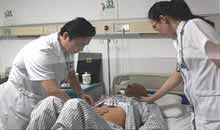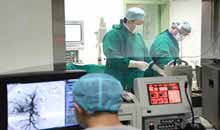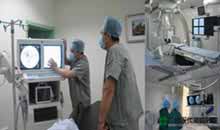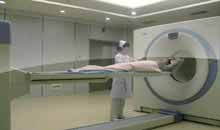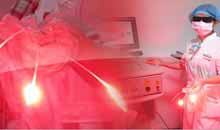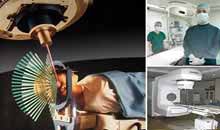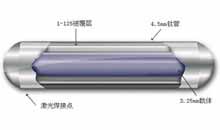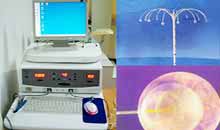- Basic
- Symptoms
- Diagnosis
- Treatments
What is Oral Cancer?
Oral cancer is malignant cancer that starts in the mouth. It may occurs in the lips, gum, tongue, palate, jaw bone, floor of the mouth, oral pharynx, salivary glands, maxillary sinus and mucous membrane of the facial skin.
Incidence of Oral Cancer
The incidence of oral cancer accounts for 1.45% to 5.6% of all the malignant cancers with a higher percentage among males than females.
Causes of Oral Cancer
1. Long-term addition to smoking or drinking: most oral cancer patients have long history of smoking or drinking. Non-smoking and Non-drinking are seldom found with oral cancer.
2. Bad oral hygiene: bad oral hygiene provides a nourishing environment for the growth and multiplication of bacteria and mycetes, which are beneficial to the formation of nitrosamine.
3. Long-term stimulation of foreign body: long-term stimulation to the mucous membrane of the oral cavity by root of teeth, sharp teeth cusps or unsuitable false teeth, can cause chronic ulcer and cancerous lesion.
4. Innutrition: lack of elements like vitamin A1, vitamin B2 and trace element zinc, arsenic, can raise the organism’s sensitivity to carcinogen and causes oral cancer.
5. Leukoplakia and erythroplakia: oral leukoplakia and proliferative erythroplakia are signs of cancerous lesion.
6. Ultraviolet rays: for outdoor workers, long-term exposure to direct sunlight can raise the risk of oral cancer.
7. Ionizing radiation: ionizing radiation can cause changes of DNA and activate the cancer genes, thus, causes cancer.
8. Others: diseases like chronic hepatitis, cirrhosis and virus infection, which can cause decrease of the organism’s immunity, also have relation to the incidence of oral cancer.
Postoperative Care of Oral Cancer
1. Provide liquid diet to the patient after surgery and change into semi-liquid diet about one week after the operation.
2. Observe the color, temperature and elasticity of the patient’s skin flap, if it is low in temperature, greenish purple and increasingly aggravates, turn to the doctor instantly.
3. Aspirate the patient’s secretions in the mouth, nasal cavity and pharynx to keep the airway unobstructed.
4. If the patient is not able to talk, check whether there are symptoms of airway obstruction, such as fidget and nasal flaring, if any, inform the doctor.
Other supports you can get from Modern Cancer Hospital Guangzhou
Study proved that a muti-disciplinary medical group, which is composed of surgical oncology, medical oncology, department of traditional Chinese medicine, pathology department, department of radiology, anesthetist and professional nurses, can make a more effective, more suitable and more economical treatment plan so as to improve the effect of cancer treatment.
Modern Cancer Hospital Guangzhou, with its multi-disciplinary “one-stop” medical system, offers comprehensive diagnosis and treatment service to patients. It not only offers patients with all-round considerate medical service, but also improves the medical efficiency and level without increasing patient’s burden. Communication channels between patients and doctors are various, which include online consultation, email, on-phone communication and face-to-face communication. All these communication channels allow patients to enjoy the service of consultation and help them fight against cancers. Medical groups that services patients include doctors, nurses, dietitians and interpreters, by whom all levels of needs of patients from different countries can be met. Under this smooth communication environment, patients can peacefully cooperate with the treatment.
Oral cancer is a common malignant tumor of the oral cavity. Early symptoms of oral cancer are more like oral ulcer, thus a lot of early stage oral cancer patients may easily mistake oral cancer as oral ulcer or other oral diseases, so that miss the best time for treatment. In order to guarantee your own healthy, people somehow should know cancer suspicious symptoms.

Symptoms of oral cancer
1. Pain: in early stage there will be no pain or just local abnormal friction feeling; if oral ulcer appears, patients would feel obvious pain. As tumor invades to adjacent nerves, it causes ear pain or sore throat, etc.
2. Color change: if mucous membrane of oral cavity becomes white, brown or black, it means that mucosal epidermal cells have changed. Especially if oral mucosa becomes rough, thickening or show callosity, and even manifests white spotting, erythema, then it probably has already produced canceration.
3. Unhealed ulcer: the course of oral ulcer usually won’t exceed two weeks; if burning sensation and other symptoms such as pain have lasted more than two weeks without any sign of recovery, you should be alert to the possibility of oral cancer.
4. Lump: there is lump inside the mouth or in neck for unknown causes (when touch it, there will be not necessarily pain). Oral cancer often spread to adjacent lymph nodes of neck. Sometimes the primary lesion is very small, even the symptoms are not obvious, but the neck lymph nodes appear metastatic cancer cells. Therefore, if neck lymph node suddenly enlarges, oral check is required.
5. Oral cavity often appears repeated and unexplained bleeding with difficulty in mouth close or open. Bleeding is a big risky sign of oral cancer. Because slightly touch on the tumor grew in the oral cavity will lead to bleeding. The tumor may also invade masticatory muscles and mandibular joint, which would lead to opening and closing movement restriction or difficulty of mouth.
6. Jawbone and teeth: localized swelling of jawbone would result in facial asymmetry. Patients who suddenly suffer from loosen or fallen off teeth, poor dental malocclusion when chewing food, denture discomfort (if any), numbness or pain of oral cavity and pharynx, and with no improvement after general symptomatic treatment, need to be alert of oral cancer.
7. Tongue movement and perception: the tongue activity is restricted, which results in difficulty in chewing, swallowing or speaking, unconsciousness or numbness of tongue hemi, all these need to be identified with definitive reasons.
In addition, some other symptoms like facial nerve abnormalities, numbed sensation, unexplained meatus bleeding, should also be identified with causes or for early treatment.
Experts of Modern Cancer Hospital Guangzhou remind that the above symptoms are common symptoms of oral cancer, but they cannot completely determine whether you have cancer or not, because oral inflammation would also cause these symptoms. No matter how, it is the best to go to hospital timely for definitive diagnosis and receive corresponding treatments.
The formation of oral cancer is a chronic pathological process: it may take several years, even decades to develop into typical or obvious cancer lesions. Therefore, regular oral check can timely and effectively prevent the occurrence of oral cancer.

1. Imaging examinations
(1) Radioactive nuclide inspection can provide information related to bone metastases of tongue thyroid or oral cancer.
(2) B-ultrasound.
(3) X-ray plain film and fault photography can provide more valuable information if oral cancer has invaded maxillary bone, mandible or accessory nasal paranasal sinus.
(4) CT inspection can observe tumor size, scope and surrounding tissues and the relationship with carotid artery, so that help to understand whether there is neck lymph node metastasis.
2. Cytological examination and biopsy
Exfoliative cytological is suitable for asymptomatic precancerous lesions or early squamous carcinoma that has not clear lesion range, and also suitable for screening inspection, and after that biopsy can be further performed to confirm the positive or suspicious cases.
Diagnosis of oral squamous carcinoma is usually conducted through pliers-taken or chipped biopsy. Because of its surface mucous membrane have been run broken or not normal, and also in superficial position; it should avoid the dead keratinized tissue, and also take samples in the boundary area between the tumor and surrounding normal tissue to guarantee that the sample has both tumor tissue and normal tissue.
Although the above biopsy rarely discovers tumor cell proliferation and metastasis, however, for some cases whose treatments have been delayed too long, local tumor growth acceleration can be found, so the interval between biopsy and clinical treatment shall be as short as possible. Besides, biopsy should be performed in the hospital that is capable of giving effective treatments.
3. Self-check
(1) Face and neck examination: when examining the neck, try to raise your head backwards as much as you can and check whether there are abnormalities in the inferior maxilla area and neck. Touch both sides of your neck and the inferior maxilla area with your hands to feel the difference between the inferior maxilla area and the two sides of the neck.
(2) Lip examination: observe the outer side of both lips, touch them with your hands, lightly pull down the lower lip with your fingers and check its inner side, and then check the inner side of your upper lip.
(3) Gum examination: observe your gums and touch them with your fingers to see whether there are abnormalities.
(4) Cheek examination: keep you mouth closed, lightly pull both corners of your mouth oppositely towards the direction of your ears, touch both your cheeks and see whether there is abnormality.
(5) Check your tongue: stretch out your tongue, hold it with your hand, touch and observe the surface, pull it to the left and then right side to check whether there are abnormalities on lateral borders.
(6) Check the roof of the tongue: raise your tongue, touch and observe it to check whether there are abnormities.
(7) Check the pharynx and palate: open your mouth and say “ah”, observe the pharynx under light, raise your head backwards, and touch the palate to see whether there is abnormality.
Modern Cancer Hospital Guangzhou remind that periodical oral check can contribute to early detection of disease; if early treatment is given, the treatment effects will be greatly enhanced.
In recent years, the annual global deaths due to malignant tumors are nearly ten million. Among all cancers, oral cancer incidence amounts for 1.45% ~ 5.6% of systemic malignant tumors. 5 years survival rate of oral cancer is not very high, usually amounts for 60%, so it is one of the malignant tumors that seriously threat to health of human-being. Therefore, oral cancer treatment methods are very important.

Conventional treatments
Conventional treatment methods are surgery resection, radiotherapy, chemotherapy, Chinese medicine treatment.
Integrated application of surgery resection and radiotherapy is superior to single application. Chemotherapy is still a kind of auxiliary therapy which can be adopted prior to surgery or cooperated with radiotherapy.
Either used alone or integrated application with surgical operation, radiotherapy has been playing an important role in the treatment of oral cancer. For advanced lesions, especially those with cervical lymph nodes metastasis, the therapeutic effect of radiotherapy alone is poor. The ideal treatment option shall rely on the cooperation by radiologists and surgeons, so that they can work out the integrated treatment programs according to the anatomic location of the lesion, invasion scope, severity of lymph node metastasis as well as systemic condition of the patient, etc.
Chemical treatment: the majority of head and neck cancers are squamous cell carcinomas which have low sensitivity to chemotherapy. It is seldom to apply chemotherapy alone for the treatment of cancers in head and neck, and often chemotherapy is applied together with radiotherapy or surgical operation.
Chinese medicine treatment: usually oral cancer patients have poor physical quality with weak physical fitness. When patients cannot bear radiotherapy and chemotherapy, Chinese medicine treatment can be adopted to strengthen body immunity and enhance antitumor strength of oral cancer patients.
Minimally invasive treatment
For tumor with comparatively large scope of metastasis or lymph node metastasis, the traditional surgery, radiotherapy and chemotherapy have many big side effects, but the minimally invasive surgical treatment using modern high-tech means, can precisely kill cancer cells with small trauma, quick recovery and therapeutic effects, etc. so more and more patients prefer such treatment.
Nutrition and diet therapy
A large amount of vitamin A can prevent the occurrence or recurrence of oral cancer, but too much vitamin A intake is also toxic, so vitamin A can only be supplemented under the supervision of doctor.
Home treatment
During radiotherapy, mouth open, secretion of gland and teeth brushing, all these have difficulties, so patients should try to do gentle stretching exercises and often flush the mouth with soft toothbrush and moderate effective gargle. Patients can also try reed sprout juice or cool chamomile tea to increase secretion of the glands and eliminate dry of mouth, or use acidophilus solution to clean mouth so as further facilitate the supply of more health foods. Repeat these steps several times each day.
Modern Cancer Hospital Guangzhou reminds you that besides patient’s actual condition, choosing which kind of treatment still relies on the doctor's clinical experience and skills as well as on hospital’s facilities. Patient’s condition should be assessed objectively and treatment plan shall be relied on multidisciplinary consultations. Success or failure of oral cancer treatment is largely relied on whether proper treatments have been chosen or not.
If you have any questions, please contact us via online consultation, email or phone call. If you find our website useful, please follow our FaceBook and YouTube, health information will be updated regularly.








